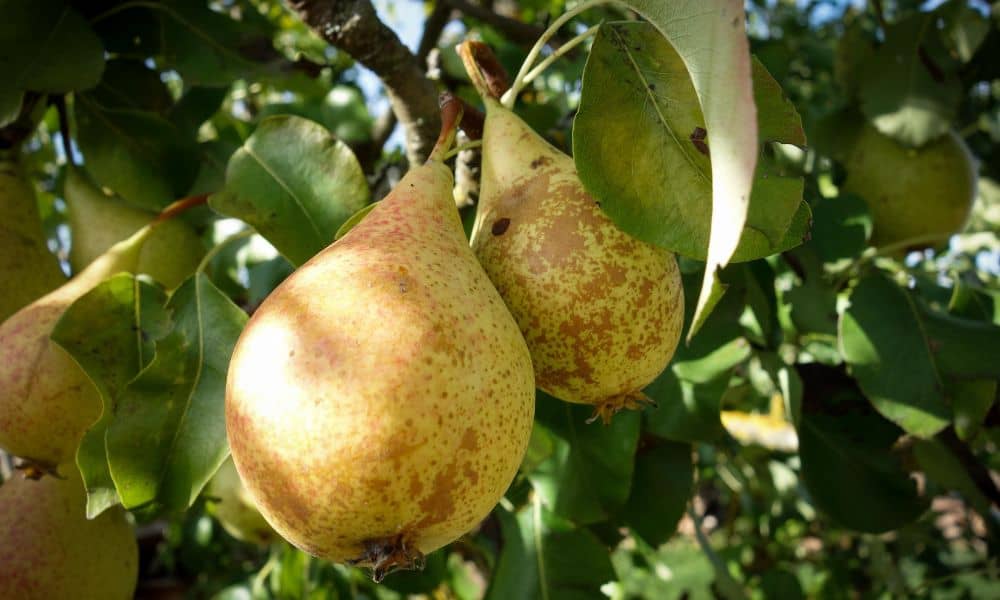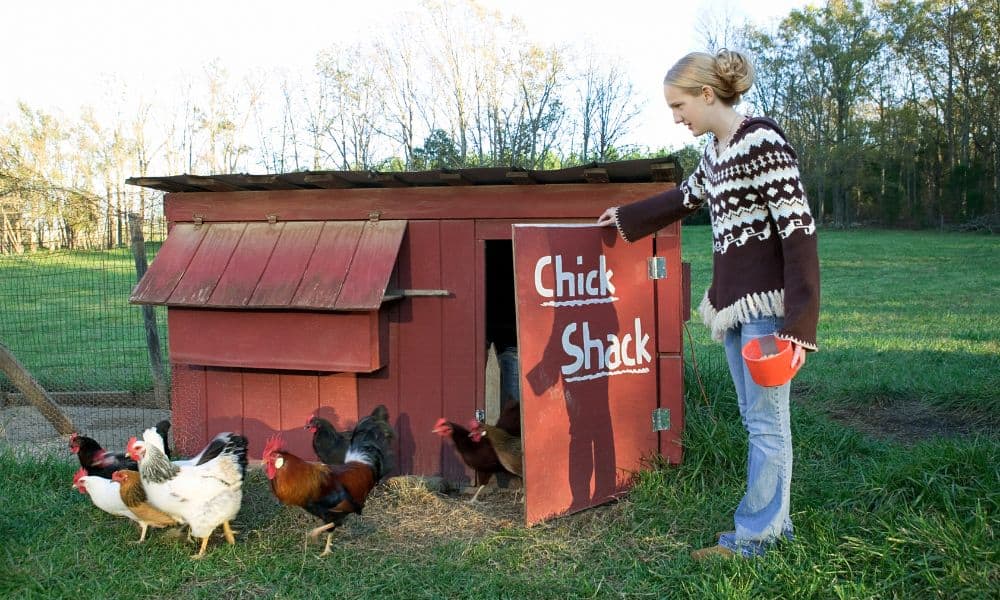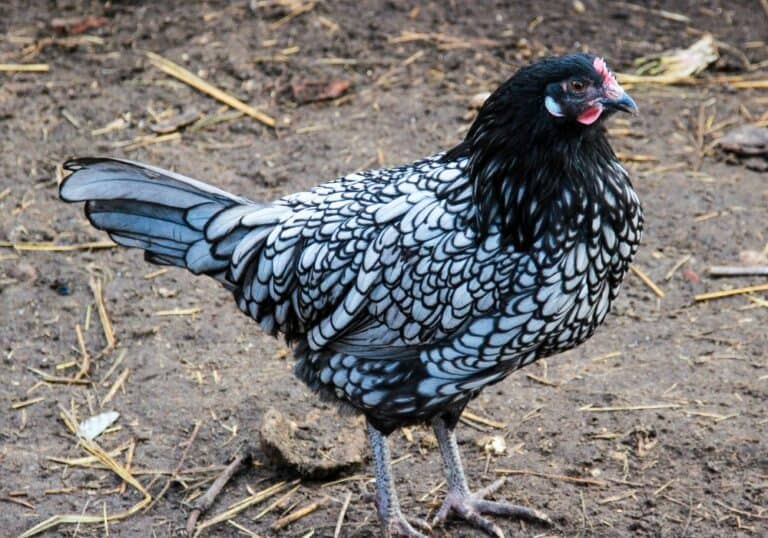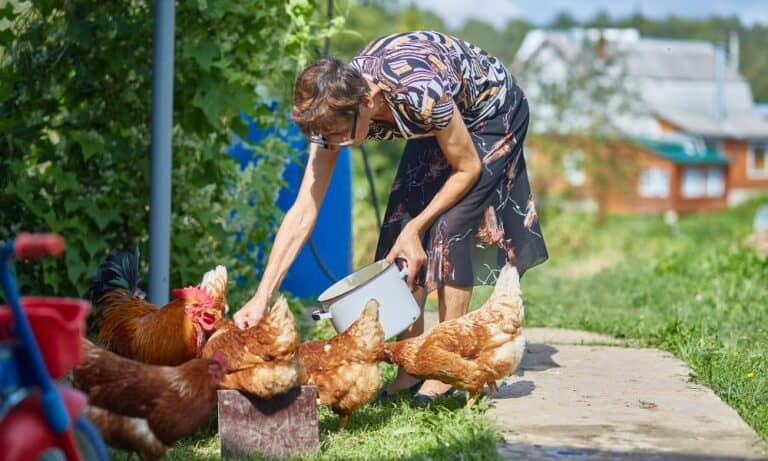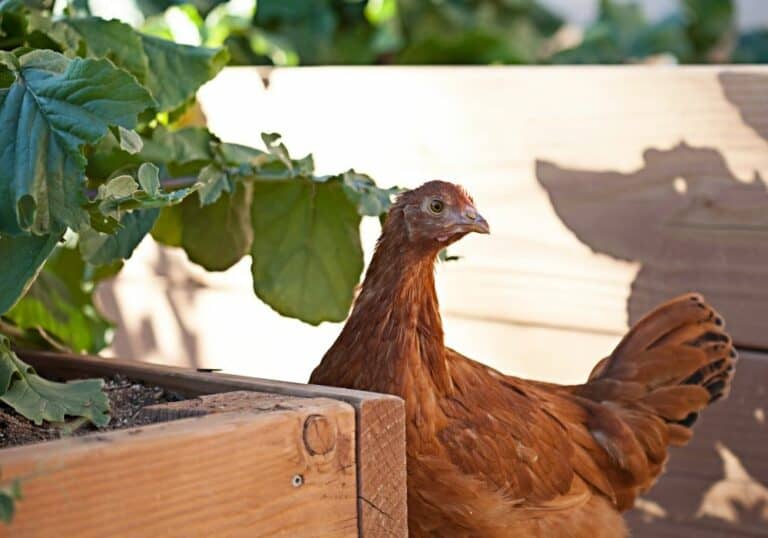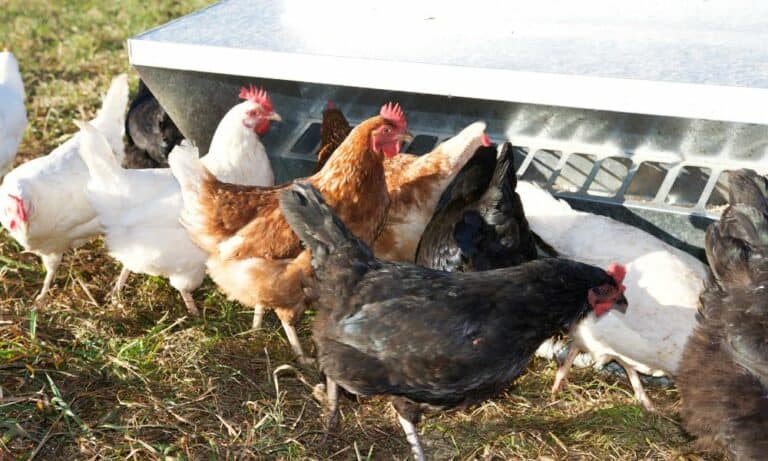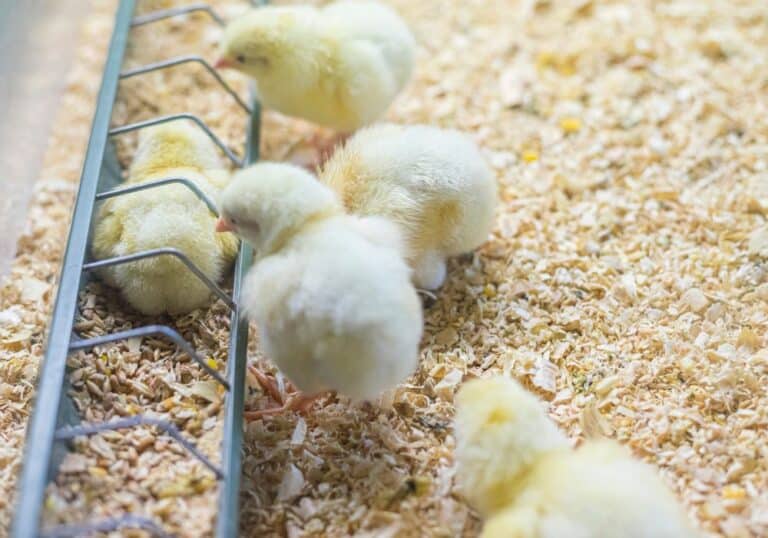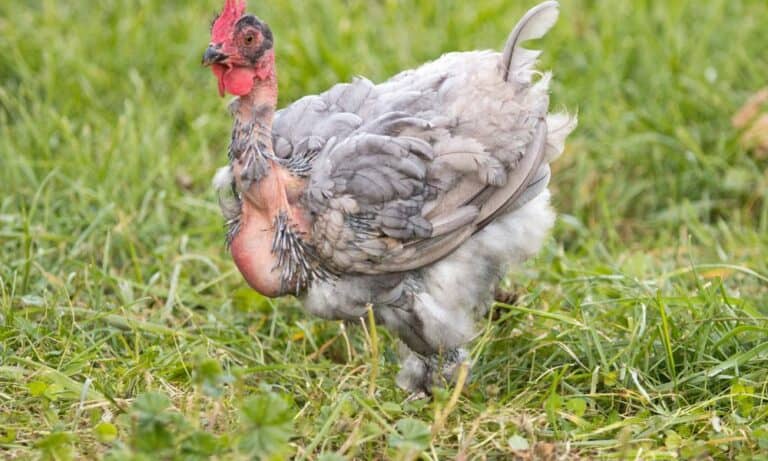As any chicken keeper knows, chickens are unfussy eaters, and they will happily gobble up just about whatever comes their way, including bugs, weeds, fruit and vegetables. But what about pears? Is it safe for chickens to eat them? And is there any limit to how many they can have?
Pears can be highly beneficial to chickens if they are fed to them in the right quantities and in the right way. And to help you understand what to do and what to avoid, in this post, we give you all the info you need as we answer the question, can chickens eat pears?
Can Chickens Eat Pears? The short answer
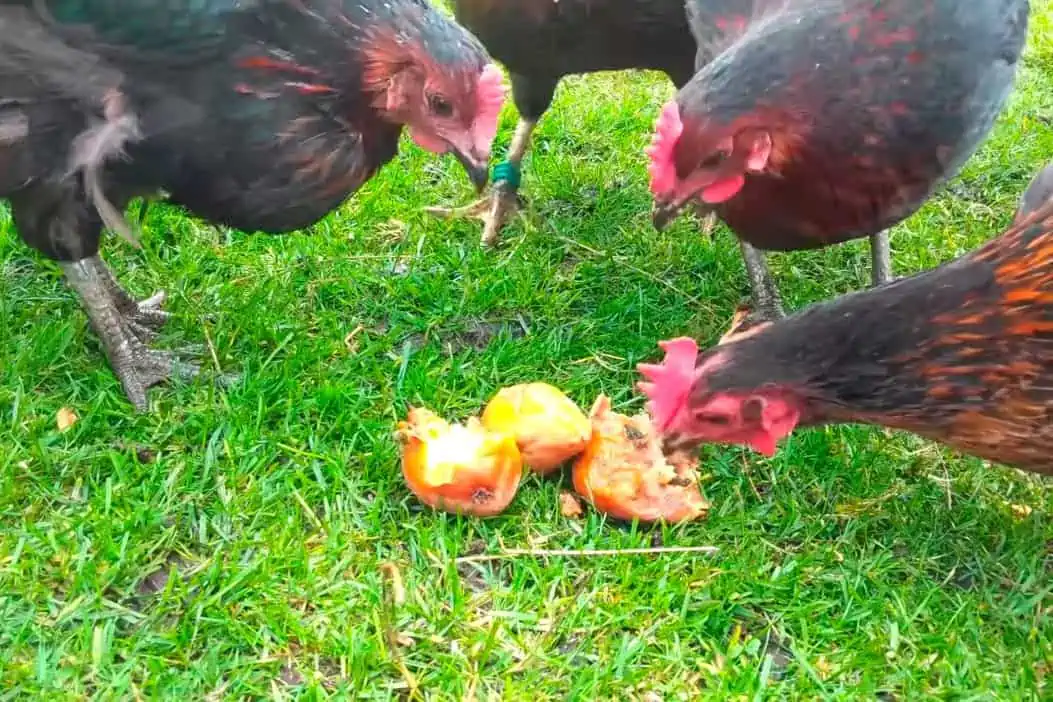
Let’s start by giving a simple answer to a simple question.
Can chickens eat pears? Yes, they can!
Chickens are omnivorous creatures and will eat most things they can get their beaks on.
This includes pears, which are generally considered good for chickens’ health – so if you want to feed pears to your chickens, go ahead. Most chickens enjoy pears and will happily eat them up if they find them, and they will also receive some important health benefits from them.
However, always remember that chickens require a balanced diet, so don’t feed them exclusively on pears or their health will suffer.
Rather, the key is only to feed them pears in moderation – so now let’s go a bit deeper into what you need to know about feeding chickens pears.
What’s in a pear?
We’ve just mentioned that chickens require a balanced diet, so what nutritional value do pears have and what benefits can they bring?
-
Fiber
First, pears are a good source of dietary fiber, which means they help maintain chickens’ gut health and also contribute to reducing the risk of constipation.
Like us, when chickens consume fiber, the fiber isn’t absorbed into the body but rather helps the waste pass through and out the other end, something that’s important for keeping the digestive system in good working order.
-
Vitamins
Pears are also known to be good sources of vitamins C and K.
Vitamin C is important for a chicken’s immune system, and a chicken that has a diet that’s rich in vitamin C is less likely to suffer from infection.
Furthermore, ensuring your chickens have enough vitamin C in their diet is thought to increase egg production, something all chicken keepers will be keen to encourage.
Vitamin K, on the other hand, is important for other aspects of health. Without it, chickens may suffer from weakened bones, easy bruising and problems with blood clotting.
-
Minerals
An important mineral found in pears is potassium, something that plays a part in increasing bone strength as well as allowing chickens to lay more eggs.
Pears also contain other minerals, including iron and calcium, which are similarly important for a chicken’s wellbeing.
The minerals present in pears can help maintain a chicken’s health in many areas. Among other things, eating pears may contribute to improving heart health, lowering blood pressure, improving circulation and preventing hemorrhoids.
-
Water
Pears contain around 80% water, so they are also a great way to help your chickens stay properly hydrated. This means feeding chickens pears during the warmer months is especially beneficial since it helps them to maintain their body fluid levels properly.
-
Sugar
Something less beneficial in pears is their sugar content, which can cause several health problems in chickens, including obesity and inflammation.
Furthermore, chickens with diets that are high in sugar don’t receive enough calcium or protein, and this can lead to reduced egg production – or in severe cases, egg production can cease altogether.
While chickens with small amounts of sugar in their diets seem to be healthier than those with none at all, you need to be careful about giving them too much.
This is one of the main reasons why you can feed chicken pears, but only in moderation.
Which parts of Pears can chickens eat?
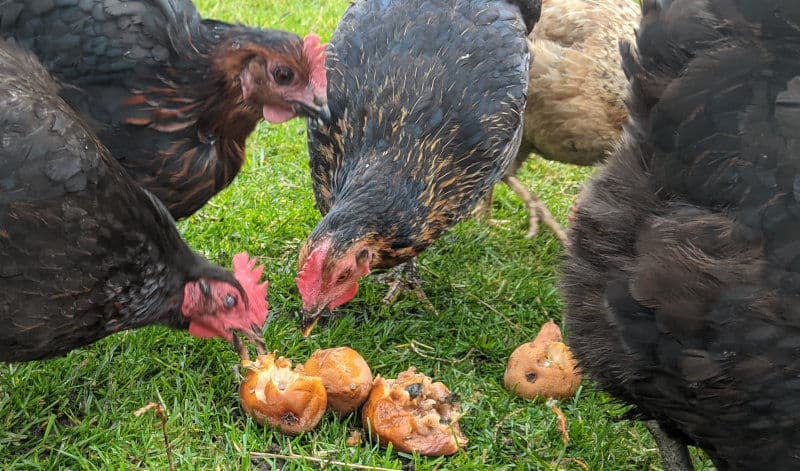
So which parts of a pear can chickens eat? In short, they can eat all of it.
Chickens are usually quite happy to peck away at an apple, and apples are harder than pears, so the soft flesh of a pear will pose no problems for a chicken’s voracious beak.
But do you need to skin pears before you feed them to chickens?
Not at all. Chickens are quite capable of consuming the skin from a pear without any harm coming to them. On the contrary, pear skins are rich in vitamins and minerals and are a particularly rich source of dietary fiber.
This means removing the skins from pears will reduce the dietary benefits a chicken can receive from eating pears – so it’s better just to leave them on!
Cyanide in the seeds
But what about the seeds?
You may have heard – or perhaps read online – that pear seeds contain cyanide.
This may be true, but they only contain this poisonous compound in trace amounts, and it would take a whole lot more than just a couple of seeds from a pear or two to kill a chicken.
More than this, pear seeds don’t taste particularly nice – either to humans or to chickens – so although chickens might inadvertently swallow one or two while pecking at a pear, they won’t actively seek them out.
As a result, you don’t need to worry about removing seeds from pears before feeding them to your chickens.
And you certainly don’t need to lose any sleep over your chickens dying from cyanide poisoning any more than you need to worry about a person dying from swallowing a few seeds while eating a pear.
Can chicks eat pears?
Yes, growing chicks have the same dietary requirement as adult chickens, so you can also feed them pears.
However, you shouldn’t introduce things like pears to chicks too early, so it’s best to wait about three weeks before you add them to their diet.
How to feed pears to chickens
So what’s the best way to feed pears to chickens? Do you need to do anything special? Or can you just throw the pears out onto the ground for the chickens to find and let them get on with it themselves?
Here are a few pointers to follow.
-
Pears in most forms are fine for chickens
Chickens will eat raw pears, cooked pears, sliced or smashed pears, processed pears or dried pears – but if you feed them processed pears, you just need to make sure they don’t contain any preservatives that might harm your chickens.
However, chickens shouldn’t be given pears that have been made into jam or preserves – and nor should they be eating any other fruit in this form.
And they most certainly shouldn’t be given pears that have been cooked in wine, although we’re fairly sure no chicken keeper in their right mind would consider doing this anyway!
-
Cutting pears up can prevent squabbles
Although chickens will have no trouble devouring a whole pear, they’re not very good at sharing, so to prevent them from fighting over what you give them, it’s better to cut the pear up into pieces.
That way, they will all be able to grab a morsel and run away to eat it rather than trying to grab a piece of the same pear all at once.
-
Cook pears that are underripe
If pears are hard, it means they are underripe and will have a higher acid content. In this case, you’re better off cooking the pears first since it will make the pears easier to eat and easier to digest for your chickens.
-
Half a pear per chicken once a week
The correct dose is about half a pear per chicken. You can give them half a pear each about once a week, but you shouldn’t feed pears to them more often than this.
-
Clean up any leftovers
If pieces of pear remain after feeding time, make sure you collect them up and remove them rather than leaving them for the chickens to come back to later.
Rotting pears – or any other fruit – can attract insects as well as other pests such as rodents, so make sure you don’t leave them lying around for too long.
-
Choose organic pears for your birds
If you want your chickens to be in the best health and to lay the most flavorsome eggs possible, you should always choose organic pears (and other fruit) to feed them.
This is because non-organic foods contain chemical pesticides that may be detrimental to their health.
Many benefits to eating pears – in moderation
We started by saying that chickens can eat pears, but as we have seen, there’s more to it than just this. Pears can bring many health benefits to chickens, but they shouldn’t overindulge in pears, or the pears can become detrimental to their health.
The key to keeping happy, healthy and productive chickens is to provide them with a balanced diet that provides all the nutrients, vitamins and minerals they require – and serving them pears in moderation can play a role in giving them the balanced diet they need.

